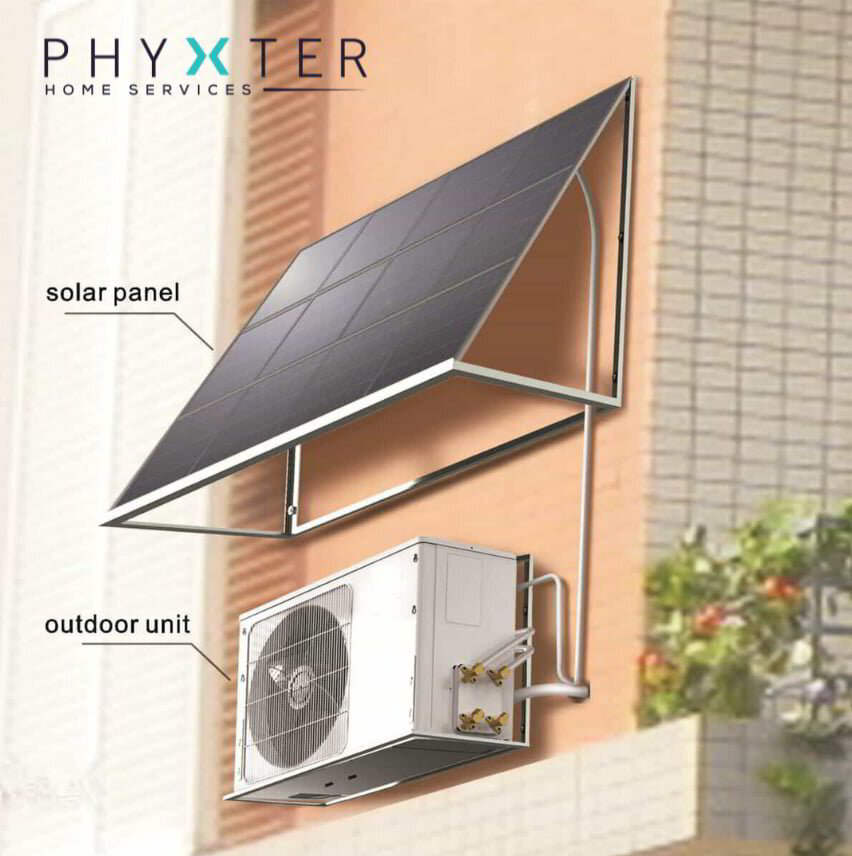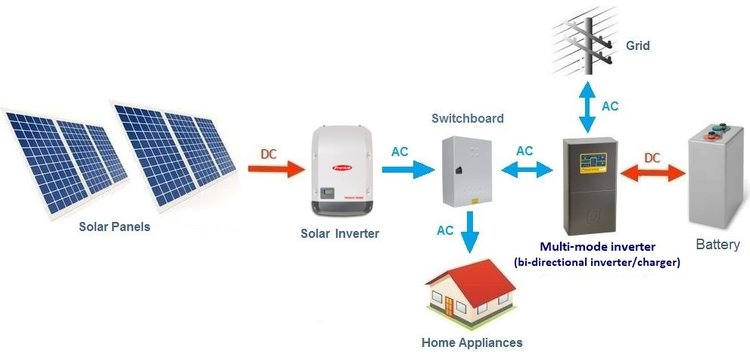Solar Panel For Home Air Conditioner | Solar Power For Your Home AC
I. Introduction
Solar panels have revolutionized the way we harness energy from the sun. In recent years, the concept of utilizing solar panels for various purposes has gained significant attention and popularity. These panels, composed of photovoltaic cells, convert sunlight into electricity, making them an eco-friendly and sustainable alternative to conventional energy sources.
The utilization of solar panels offers numerous benefits, both for individuals and the environment. By harnessing the power of the sun, we can reduce our reliance on fossil fuels, decrease greenhouse gas emissions, and contribute to a cleaner and greener future. Moreover, solar energy is renewable, meaning it will never run out, providing us with a reliable and inexhaustible source of power.
One of the primary applications of solar panels is in residential settings. Homeowners can install solar panels on their rooftops to generate electricity for their households. This not only allows them to save on energy bills but also enables them to become more self-sufficient and less dependent on the grid. With advancements in technology, solar panels have become more efficient and affordable, making them a viable option for homeowners worldwide.
Solar panels are not limited to residential use alone. They are extensively employed in commercial and industrial sectors as well. Businesses can install solar panels on their premises to power their operations, reducing operational costs and contributing to a greener image. Additionally, solar energy can be utilized in remote areas where access to traditional power sources is limited, providing electricity to communities that were previously underserved.
The concept of utilizing solar panels for various purposes has gained significant traction in recent years. By harnessing the power of the sun, we can tap into a clean, renewable, and sustainable source of energy. Whether in residential, commercial, or industrial settings, solar panels offer numerous advantages, making them an attractive option for those seeking an environmentally friendly and cost-effective energy solution.
III. Benefits of Solar-Powered Air Conditioning
Solar-powered air conditioning systems offer numerous advantages when it comes to cooling your home or office space. These innovative systems harness the power of the sun to provide efficient and eco-friendly cooling solutions. Let’s explore some of the key benefits that come with opting for solar-powered air conditioning.
1. Energy Efficiency:
Solar-powered air conditioning systems are highly energy-efficient compared to traditional cooling systems. By utilizing solar energy instead of relying solely on electricity from the grid, these systems significantly reduce your carbon footprint. They harness the abundant and renewable energy of the sun, making them a sustainable choice for cooling your space.
2. Cost Savings:
One of the major advantages of solar-powered air conditioning is the potential for cost savings. By generating electricity from solar panels, you can reduce your dependence on expensive grid electricity. This not only lowers your monthly energy bills but also provides long-term savings. Additionally, some regions offer incentives such as tax credits or rebates for installing solar-powered systems, further reducing the overall cost.
3. Reliability and Independence:
Solar-powered air conditioning systems provide a reliable cooling solution, especially in areas with ample sunlight. These systems can operate even during power outages, as they are not solely dependent on the grid. By generating their own electricity, they offer independence and peace of mind, ensuring uninterrupted comfort during hot summer days.
4. Environmental Benefits:
The environmental benefits of solar-powered air conditioning are significant. By decreasing reliance on fossil fuels, these systems contribute to reducing greenhouse gas emissions and combating climate change. They help preserve natural resources and promote a cleaner and healthier environment for future generations.
5. Quiet and Low Maintenance:

Solar-powered air conditioning systems are known for their quiet operation and low maintenance requirements. As they have fewer mechanical parts compared to traditional cooling systems, the chances of breakdowns and repairs are significantly reduced. This translates to less noise pollution and fewer maintenance expenses, making them an attractive option for homeowners and businesses alike.
In conclusion, opting for solar-powered air conditioning systems brings a multitude of benefits. From energy efficiency and cost savings to reliability and environmental advantages, these systems offer a sustainable and economically viable way to cool your space. Make the switch to solar-powered air conditioning and enjoy a comfortable and eco-friendly environment.
Solar Panel For Home Air Conditioner -IV. Sizing and Installation Considerations
Solar panels have gained immense popularity in recent years as an eco-friendly and cost-effective solution to power various appliances at home, including air conditioners. If you are considering installing solar panels to power your home air conditioner, it is crucial to understand the sizing and installation considerations to ensure optimal performance and energy efficiency.

Sizing Considerations
Properly sizing your solar panel system is essential to meet the energy demands of your air conditioner. The first step is to determine the power requirements of your AC unit. This information can typically be found on the unit’s nameplate or in the owner’s manual. It is usually expressed in watts (W) or kilowatts (kW).
Once you have the power requirement, you need to account for the number of operating hours and the average energy consumption of your air conditioner. This data can vary depending on your location, climate, and usage patterns. It is advisable to consult an HVAC professional or a solar panel installer to accurately calculate your air conditioner’s energy needs and recommend the appropriate panel size.
Installation Considerations
When it comes to installing solar panels for your home air conditioner, there are a few crucial factors to consider. The positioning and orientation of your panels play a vital role in maximizing their efficiency. Ideally, the panels should be installed in a location that receives maximum sunlight throughout the day, such as the rooftop or an open area free from obstructions like trees or buildings.
In addition to the positioning, the angle at which the panels are tilted should be optimized for your geographical location. This tilt angle ensures that the panels receive the optimal amount of sunlight throughout the year, considering the sun’s position and seasonal variations.
Furthermore, the wiring and connection of the solar panel system must be done correctly to ensure seamless integration with your home air conditioner. It is crucial to hire a certified electrician or a solar panel installer who can handle the electrical aspects of the installation safely and efficiently.
Conclusion
Installing solar panels to power your home air conditioner not only reduces your carbon footprint but also saves you money in the long run. Proper sizing and installation considerations are crucial to ensure optimal performance and energy efficiency. By consulting professionals and understanding the requirements, you can make an informed decision and enjoy the benefits of a solar-powered air conditioning system.
FAQs – Solar panel for home air conditioner
What is a solar-powered air conditioner?
A solar powered air conditioner is an air conditioner that uses solar power to provide heating, cooling, and other features. Solar powered air conditioners use solar energy to operate. There are many different types of solar powered air conditioners, each with its own advantages and disadvantages.
It is important to choose the right solar powered air conditioner for your specific needs, including your budget and climate.
How is a hybrid solar air conditioner different from a standard heat pump?
A hybrid solar air conditioner is a type of heat pump that combines the heating and cooling processes to produce both hot and cold air. They are also referred to as “air-conditioning-plus-heating” systems.
In a typical hybrid solar air conditioner, the heat pump uses electricity from the grid to cool or heat water and transfer it through pipes to your home’s ductwork. The system then transfers the heat to the air in your home. The system also uses solar panels (installed on your roof) and a battery pack to store energy from the sun that can be used at night or when there is no sunlight.
Why have solar powered air conditioners taken so long to come to market?
There are several reasons that solar powered air conditioners have taken so long to come to market. One reason is that there are many different types of solar power and the technology is changing rapidly. Another one is that the solar power market has been dominated by fossil fuels and it’s taken time for people to realize the environmental benefits of switching over.
How many solar panels do I need to run an air conditioner?
The amount of solar panels needed depends on the size of the air conditioner and the amount of electricity that you are using. The average air conditioner uses about 40 watts of electricity, so you would need 1.9 kilowatts of solar panels to power it.
